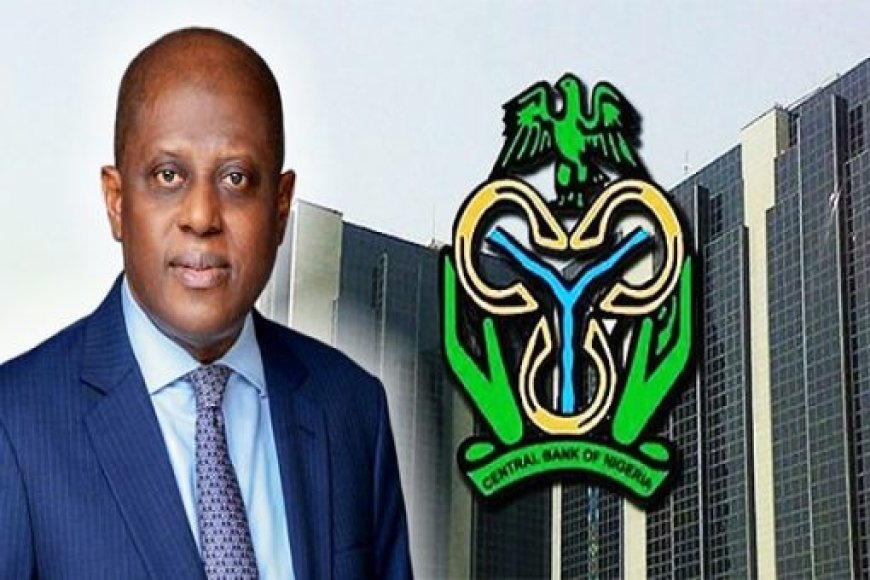Recapitalisation Will Produce Stronger Banks – Cardoso

The Governor of the Central Bank of Nigeria (CBN), Olayemi Cardoso, underscored the Bank’s determination to entrench macroeconomic stability, strengthen the banking sector, and position Nigeria as a prime destination for investment.
This is as members of the EU Chambers praised the CBN’s reforms and the stabilisation of the naira as key drivers of renewed investor confidence.
Speaking at a fireside chat during the European Business Chamber (Eurocham Nigeria) C-Level Forum in Lagos on Saturday, Cardoso said the recapitalisation exercise for banks is “making good progress” and will produce even stronger institutions capable of withstanding shocks and financing growth.
At the event moderated by Andreas Voss, chief country representative of Deutsche Bank Nigeria, Cardoso noted that while headline inflation remained elevated, it was trending downward as a result of collective efforts thus far, with the expectation that the benefits of the Bank’s tightening stance would continue to take hold.
Stating that “we will guard very jealously the stability that has been restored in the financial system,” the CBN governor said “our priority is to sustain that stability, while at the same time tackling inflation and ensuring the financial system is resilient enough to support corporate lending and investment.”
Responding to questions on high lending rates in Nigeria and their impact on investment, Cardoso acknowledged the concern but tied it back to his earlier point on inflation and stability, saying there was a significant opportunity for interest rates to come down over time as inflation continues on its downward path and as markets become more efficient in allocating capital. “That is the environment in which stronger corporate lending and higher levels of investment will naturally follow,” he added.
Cardoso noted that the CBN’s recapitalisation directive, which requires banks to increase their minimum capital, is designed precisely to build resilience and ensure the financial system is strong enough to support broader economic activities.
Highlighting efforts to strengthen the fintech ecosystem and expand financial inclusion, he said technology-driven solutions would be central to deepening access and tackling poverty. He also pointed to deeper collaboration with the fiscal side, including the Ministry of Finance, the Ministry of Trade and Industry, and the Budget Office, as a positive development that will help the country sustain reforms and deliver long-term stability.
On Nigeria’s place in the global economy, he said, “What current geopolitical shifts make clear is the urgency of getting our own house in order. Nigeria is not only a large and attractive market in its own right, but it also sits at the gateway to West Africa and the wider continent. This makes stability at home all the more critical.”Eurocham President Yann Gilbert, in his opening remarks, described the chamber as a bridge connecting European businesses with Nigerian policymakers. “Our members are deeply committed to this country,” he said. “We want to invest, create jobs, and build lasting partnerships. This forum is about engagement, dialogue, and solutions that strengthen confidence and unlock opportunities between Nigeria and Europe.”









